News & Media
Future-proofing students for the coming digital wave
On 8 May 2025, a gala dinner marked the closing of a very successful 2nd International Higher Education Teaching, Learning and Student Support Conference, hosted by Unisa. The university’s management reflected on the plight of students traversing open-distance and e-learning. Key discussions included preparing students for the future digital landscape and questioning whether the African schooling system is effectively producing graduates who are ready to tackle societal challenges.
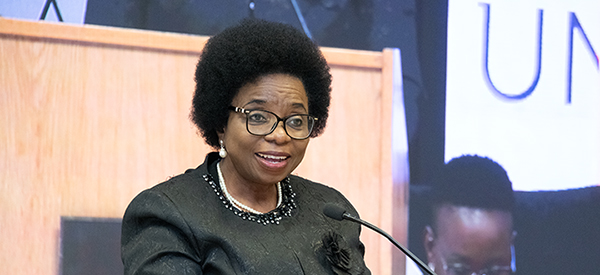
Prof Meahabo Magano, Executive Director: Department of Tuition Support and Facilitation of Learning (DTSFL)
Taking the lead in organising the conference was Prof Meahabo Magano, Executive Director: Department of Tuition Support and Facilitation of Learning (DTSFL). Her vision, commitment and unwavering efforts have been pivotal in every stage of this conference. From the initial conceptualisation and planning to the execution and coordination, Magano has demonstrated passion and leadership in her pursuit of exchanging best practices on teaching and learning for the next generation of digital students traversing open, distance and e-learning at Unisa.
Prioritising students’ needs
In welcoming guests, Prof Eunice Seekoe, Acting Vice-Principal of Teaching, Learning, Community Engagement and Student Support, reflected on the plight of students, stating that the majority of them oftentimes have to study at home, balancing this with other pressing commitments. She stated: "These structural realities disproportionally affect students, including those in rural and informal settlements. Students are not simply grappling with academic content – they are negotiating life, survival and studies. Teaching and learning strategies that fail to recognise this reality risk alienating those they intend to serve."
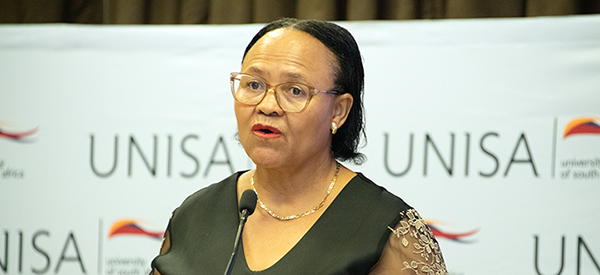
Prof Eunice Seekoe, Acting Vice-Principal of Teaching, Learning, Community Engagement and Student Support
Continuing, Seekoe commented on students’ emotional well-being and academic isolation. Quoting from a recent survey on students studying through open, distance and e-learning, she said that students feel isolated, unsupported and anxious, particularly during the assessment period.
Concluding, Seekoe proposed that student support must go beyond technical assistance and offer support that encompasses a sense of belonging, which is non-negotiable for their holistic development, personal growth and academic journey.
Future-proofing students for the digital age
Delivering the keynote address, Prof Elifas Tozo Bisanda, Vice-Chancellor of the Open University of Tanzania, spoke on embracing artificial intelligence (AI). He said that academics should not be afraid that students will spend less time at the university if they use AI, and that they should not be afraid that the lecture rooms will be less filled as a result of technology-driven teaching and learning. He added: "Indeed, information and communication technology (ICT), particularly AI, has disrupted the classroom immensely, and this is just the beginning."
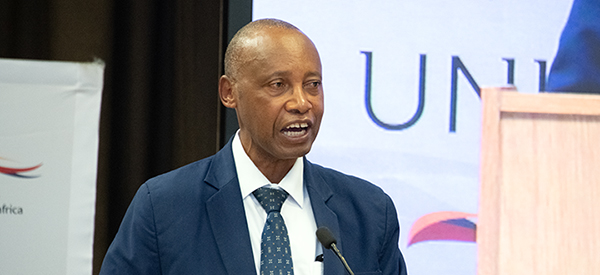
Keynote speaker, Prof Elifas Tozo Bisanda, Vice-Chancellor of the Open University of Tanzania
Bisanda stated that teaching staff should embrace the coming wave of change driven by technology, and focus on producing employment creators rather than job seekers. "It is difficult to create millions of jobs in tandem with the number of yearly graduates. Instead, we should refocus our teaching and learning agenda, assisted by AI, to steer curricula toward focusing on empowering employment creation," he emphasised.
In giving an example, Bisanda said that in South Korea, students are not directly employed after graduating. Instead, they undergo technical and vocational training to practically acquire the skill sets as a prerequisite for employment. He added: "Unless, as Africans, we embrace this system, we risk falling further behind in developing a skilled workforce ready for the demands of the modern economy and society."
Continuing, Bisanda challenged the basic education system, asking the audience: "Why do you need a full seven years to do primary education, particularly when we live in a rapidly evolving, tech-driven and increasingly AI-dominated society that demands agility and a different kind of learning?"
In his conclusion, Bisanda urged a relook into the continent’s education system and an evaluation of whether there has been tangible progress post-colonialism.
Awarding excellence
During the programme, Magano awarded certificates in the Student Support category under the theme, Educating for Social Justice in CODeL: Envisioning the future we want, 30 years post-1994 to the following individuals:
- Reletile Mangani
- Allyson Peterson
- Contilia Bayi
- Mashudu Muaudzi
- Davy Rammila
- Zanele Mpanza
- Sibusiso Mlotshwa
- Kitsiso Seete
- Tandiwe Mdlungu
- Curtis Ross Love
- Duwayne Kock
- Dikoetje Monyepao
- Kerry Slater
- Ngaka Mosia
- Ilse Morgan
- Mokopane Marakalala
- Nolukhanyo Mkala
- Neo Moefi-Kau
- Kgoleka Mdingi
- Malefa Malefane
- Keaobaka Mtjiwa
- Luthando Makhaye
- Siphoesihle Gumede
- Ndwamato Ndou
- Suné Maré
- Ashley Mutezo
The best poster award and a cash reward of R7 500 went to David Harpestad. Richard Wright, first runner-up, received R5 000, and Nasehaat Ibrahim Dawood, second runner-up, received R2 500.
The doctoral student paper presentation award went to Langa Thulani, PhD student in the College of Human Sciences, who received R7 500. The master’s student paper presentation award went to Hellen Khoza, Master’s of Education student in the College of Education, who received R5 000.00.
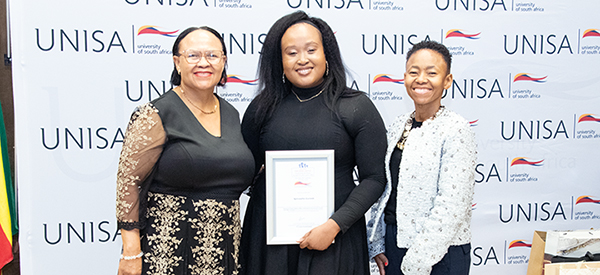
DTSFL awardee Siphoesihle Gumede, flanked by Prof Eunice Seekoe, Acting Vice-Principal of Teaching, Learning, Community Engagement and Student Support, and Mathabo Nakene-Mginqi, Chief Information Officer and Vice-Principal: Information and Communication Technology
The conference, which took place from 5 to 8 May 2025, brought together educators, researchers, policymakers, students and practitioners from around the globe who explored and shared solutions in revolutionising higher education.
The discussions from this conference and the concluding gala dinner underscored the significance of addressing the hurdles encountered by students studying through the open, distance and e-learning modality. The emphasis on future-proofing students for the evolving digital era, especially given Africa’s schooling system, highlighted the significant challenges facing both basic and higher education.
* By Godfrey Madibane, Acting Journalist, Department of Institutional Advancement
Publish date: 2025-05-12 00:00:00.0


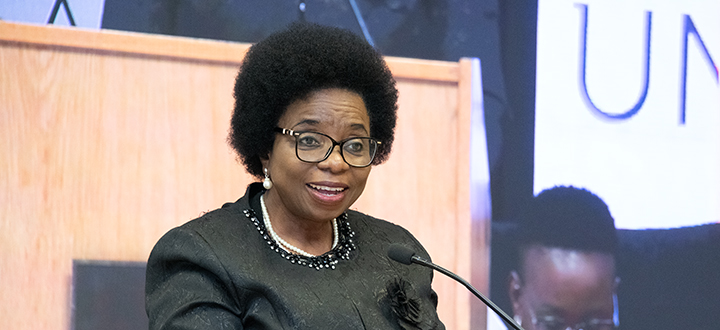 Future-proofing students for the coming digital wave
Future-proofing students for the coming digital wave
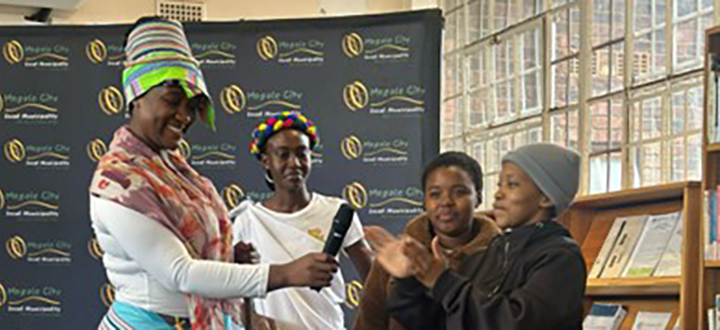 Unisa Library and Mogale City celebrate World Book and Copyright Day
Unisa Library and Mogale City celebrate World Book and Copyright Day
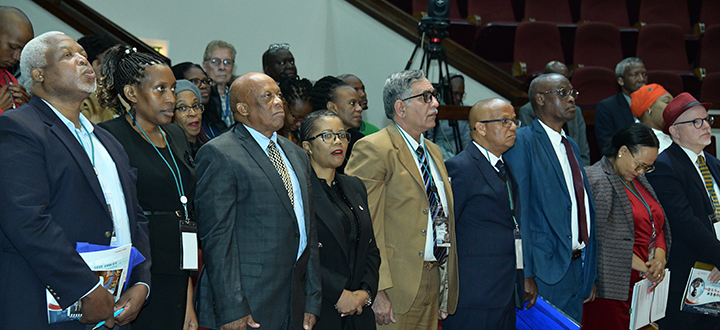 Groundbreaking Unisa conference examines how to connect minds and bridge gaps
Groundbreaking Unisa conference examines how to connect minds and bridge gaps
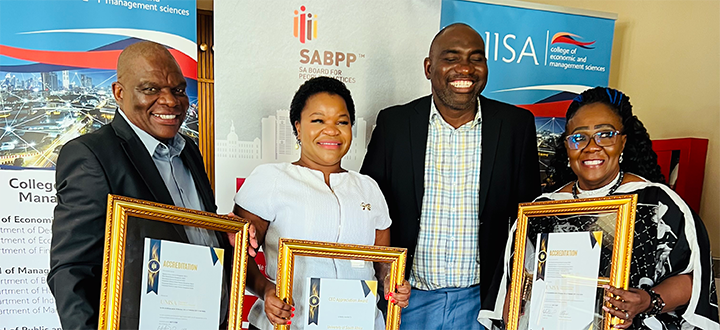 Unisan honoured with ultimate HR accolade
Unisan honoured with ultimate HR accolade
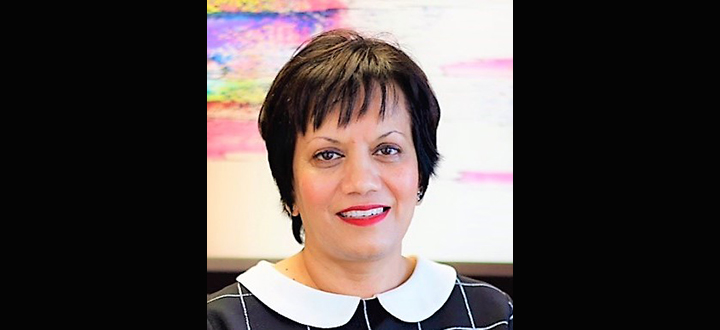 AI specialist to kick off Unisa’s Research and Innovation Week
AI specialist to kick off Unisa’s Research and Innovation Week